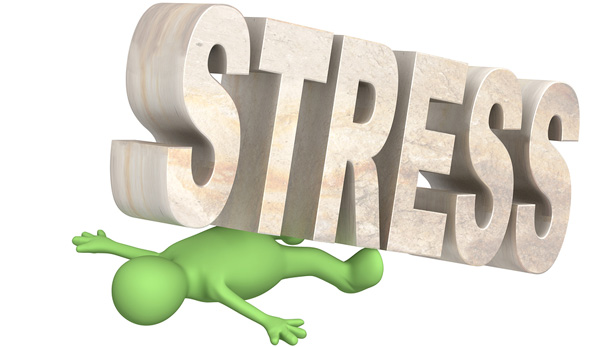It would be safe to say that the vast majority of us now accept that stress is part of every day life. In fact we have gone beyond just us accepting it but we now have a whole industry built around stress management. However, do we really understands stress? do we know what is the “real cost” of living with stress? can we really say that is stress normal? or are we just hypnotised by today’s myths around stress?
So what is stress?
Even though stress is one of the most commonly used words in today’s society its also the most misunderstood. Hans Selye the father of stress defined it as “the non-specific response of the body to any demand for change”. In fact according to Dr Selye stress is normal and we cannot get away from stress; every activity requires a physical response and results in some level of stress. From Dr Selye perspective stress is integral to life to the extent the only way to escape it is through death.
According to Dr Selye there are two distinct kinds of stress: positive stress (Eustress) and negative stress (Distress). Selye learned both ‘pleasant‘ and ‘unpleasant’ stress physically affect the body. The good news is positive stress has positive impact on the body compared to negative stress. Selye uses the example of a passionate kiss to illustrate the impact of a positive stress on the mind and body as opposed to the impact of an argument. According to Selye and most of today’s experts stress has become one of the most misunderstood concepts and it is something we need to learn to manage it or it will manage us.
The leaky boat scenario?
Most of us we are blessed with bodies that are resilient and for the vast majority of cases our bodies re able to deal with stress responses without us even noticing it. But remember that stress occurs every day whether we notice it or not and our body is continually processing the effects of stress. Selye developed the General Adaptive Syndrome (GAS) which describes how the body responds to stress response and shows the impact of untreated prolonged stress to your body.
 Selye General Adaptive Syndrome is quite complex so I will try to describe the essence of it and it’s impact. Imagine when you are free from the effects of stress it is like you rowing in a calm river. But as stress begins to affect you, stress are like small holes that appear in your boat. At first these holes are not a problem, you can easily handle the situation and these holes are more a nuisance. However, they more you leave it the more you get use to the holes, the more you get use to the more you leave it until it becomes can be a serious problem. The next time you pay attention to the holes in your boat, you are basically sinking and struggling to keep it afloat.
Selye General Adaptive Syndrome is quite complex so I will try to describe the essence of it and it’s impact. Imagine when you are free from the effects of stress it is like you rowing in a calm river. But as stress begins to affect you, stress are like small holes that appear in your boat. At first these holes are not a problem, you can easily handle the situation and these holes are more a nuisance. However, they more you leave it the more you get use to the holes, the more you get use to the more you leave it until it becomes can be a serious problem. The next time you pay attention to the holes in your boat, you are basically sinking and struggling to keep it afloat.
Untreated prolonged stress is the problem, initially most of us cannot see that stress can be a serious problem, we are conditioned to accept stress as part of normal everyday life and from there we begin the slow road of compromises and acceptance. By the time we realise that there is something quite wrong we are in serious trouble and to reverse the effects of stress can be costly and take a long time.
Both my partner Antonietta and I learned this lesson the hard way, its an experience no one should ever have to go through. About 10 years ago Antonietta was constantly unwell but not out. Antonietta always looked after herself but she lived a full life ie she had a very demanding job working at senior levels, was studying for her masters, looking after our kids allergies, taking care of her mother, being active in the community and somewhere in that time we had the normal family responsibilities. Although, she ate well, exercised and took supplements to support herself, but she was pushing herself to the point of exhaustion.
Like most we bought into the Soldier On philosophy and kept going but her levels of energy were dropping everyday, she did not feel well but did not suffer from any medically recognised”disease”. We saw a lot of doctors, alternative medical practitioners, energy healers, specialist, surgeons, etc we tried everything and no one could help us or even identify the problem. In fact one doctor even implied that we were possibly faking it because he could not see a problem – let me tell that was a low blow.
About 8 years ago we finally saw a doctor that practised Chinese Acupuncture and she identified that her pulses were very low (ie her core energy). Antonietta ended up leaving her job and we started a series of treatments to boost her energy. After a year or so Antonietta was recovering but she was still far from being the active person she used to be. One day Antonietta had to do a presentation on stress for a conference and she wanted to check on the latest research on stress for her paper. In her literature research she could not believe what she discovered, the cause of her problems, why she was so wiped and got some validation to the treatment we took. From there we further fine tuned her treatment where she is now back to her active self.
So what’s the impact of stress on your body?
Stress symptoms can affect your body, your thoughts and feelings and your behaviour. Being able to recognise common stress symptoms can give you a jump on managing them. Some of the common symptoms include:
- Headaches
- Muscle Tension
- Sleep problems
- Affects cognition – poor thinking/memory etc
- Restlessness
- Fatigue
- Frequent colds, infections, herpes sores
- Rashes, itching, hives, “goose bumps”
- Blood sugar imbalances e.g. hyperglycemia
- Osteoporotic type presentation or decreased bone density
- Decreased muscle mass – muscles getting smaller!!!
- High blood pressure
- Angry outburst, irritability
- Poorly affected immunity – slowed wound healing, and other health consequences
- Inflammation in the body,
- Increased abdominal fat which is associated with more serious health problems than fat deposited in any other area of the body e.g. heart attacks, strokes, the development of metabolic syndrome, higher levels of “bad” cholesterol (LDL) and lower levels of “good” cholesterol (HDL)
As you can see from this list stress is damaging, however, the bad news is this the short list. Stress is associate with at least 50 symptoms according to the American Institute of Stress. So we strongly recommend that you get yourself acquainted and take charge of your own health as we discovered that many health professional may not recognise these symptoms themselves.
Why do we recommend that you review the list? if you just look at this short list most of you might be exhibiting signs of stress but instead dealing with the problem you are most likely just suppressing the symptoms or job palliating until the next episode. Furthermore, most of these symptoms looked in isolation to most health professional will be treated in their isolation but as we discovered will not recognise the root problem and you will be just delaying the inevitable.
How to relieve stress?
There are so many resources and tips around the web to help deal with stress, I guess for many the main question is where to begin. From my perspective, here are my top 5 tips to get you started which are very easy and effective.
- Don’t Ignore it – we live in a society where you are expected to cope with stress and deal with it. In fact if you are not able to cope with stress you will be seen as weak and your job career will most likely stall. However, ignoring it is not the answer and palliating will not solve your problem – it will just delay it. The longer you delay it the harder and more expensive it becomes. Our experience not only cost us thousands of dollars in treatment, we also lost a couple of years of income as Antonietta was forced out of work and more importantly Antonietta missed out on significant family events because she was not able to cope with it. Her recovery took a very long time ie years.
- Sleep – rest and have a good sleep. Studies show that more and more of us are sleep deprived and we do not recognised it. Let me ask you – are you getting a good solid 8 hours sleep ie solid not disrupted on a regular basis? I would bet that most of you reserve that for the weekend and you sleep less than 8 hours during the week. Try going to bed that half an hour or even an hour earlier and feel the difference.
- Eat nourishing foods – we were are stressed we tend to eat comfort food which is usually the worse food for us ie fast food or sweets. Usually comfort foods involve some level of sugar which is know to suppress your immune system and when your immune system is sleep then you are vulnerable to health issues. You need food that is going to nourish and support your body such as fruit, vegetables and preferably organic meats ie with reduced chemicals. Why reduce the chemicals? the less your body needs to process the more energy it will have to heal you.
- Laugh – believe or not a good laugh is a great antidote for stress and in our the last article is laughter the best medicine we looked at the various health benefits we get from laughter including boosting your immune system. This is something you can easily do every day and you will have a ball.
- Do something physical – we spend far too much time in our heads and with our electronic devices. We are physical beings and we need to get in touch with the rest of our body. So walk, do the garden, watch nature, go cycling, cook a nice meal, do something that involves more than your head. Once you are able to get out of your head you will be able to start seeing things differently and give you a better perspective.
These tips may seem quite simplistic and broad but I promise you that they are quite powerful. We often over complicate things and the vast majority of time we simply just need to do one things that will start us on a new road.
Hope you found this helpful and if you have some great simple tips share it below.




